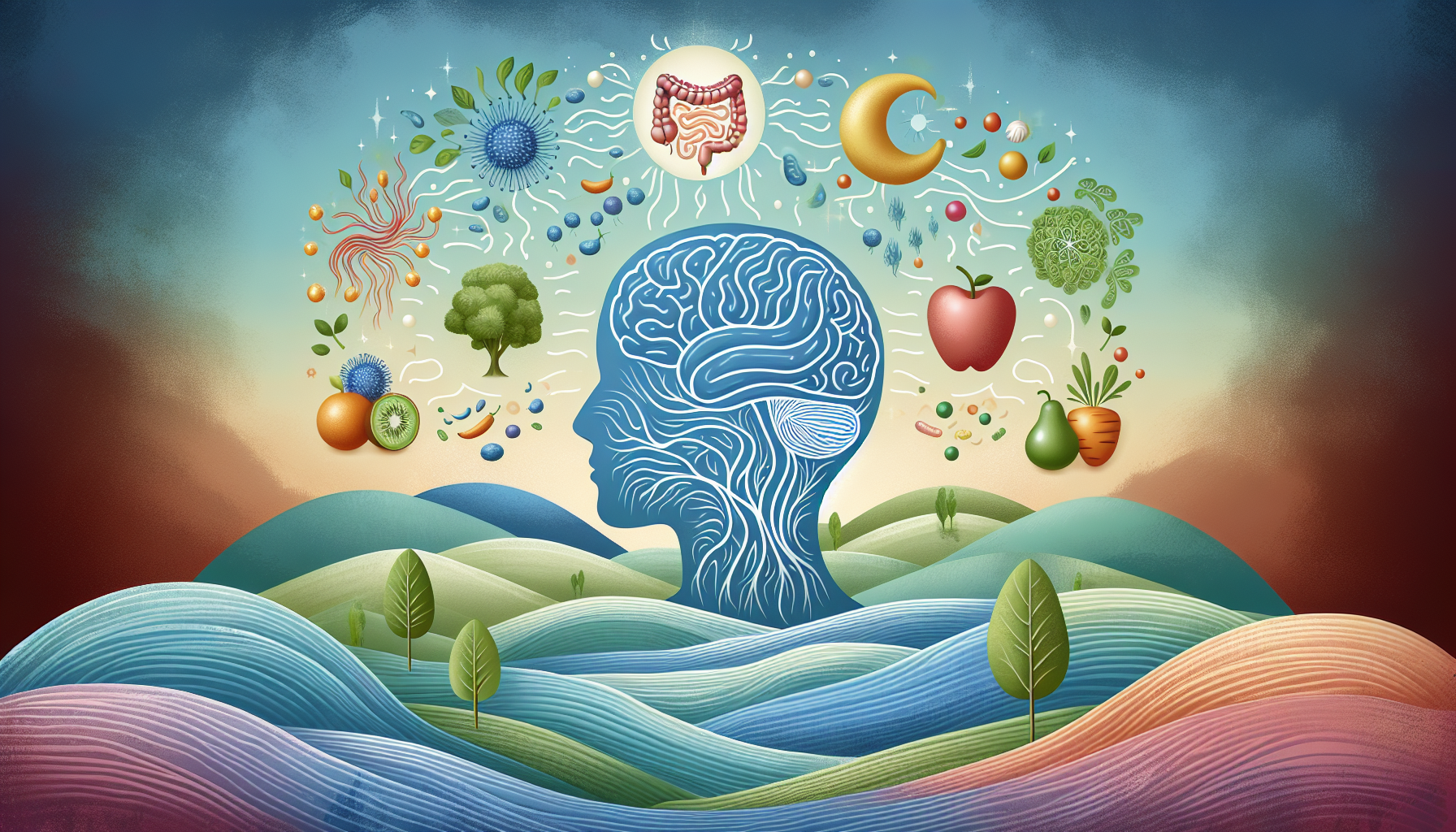The intricate link between the mind and the body is one that has fascinated researchers and medical professionals for decades. In recent years, the connection between mental health and gastrointestinal (GI) problems has gained significant attention. This relationship, often referred to as the gut-brain axis, suggests that what happens in our digestive system can have a profound impact on our mood and mental well-being, and vice versa.
The Gut-Brain Axis: Understanding the Bidirectional Relationship
The gut-brain axis refers to the two-way communication network that connects your gastrointestinal system with your brain. This complex system not only ensures the proper maintenance of gastrointestinal homeostasis but also appears to have a considerable influence on one’s mood and cognitive functions. The vagus nerve plays a pivotal role in this communication highway, transmitting signals in both directions. For a deeper dive into the gut’s role in maintaining overall health, consider reading about Digestive Health.
Impact of Mental Health on Digestive Function
Stress, anxiety, and depression can trigger a variety of GI symptoms. When we are under psychological distress, our body releases stress hormones like cortisol, which can disrupt the microbial balance in the gut, leading to inflammation and altered gut function. This can manifest as symptoms ranging from indigestion and heartburn to irritable bowel syndrome (IBS) and inflammatory bowel disease (IBD).
The Role of Stress
Chronic stress is particularly harmful as it can lead to long-term changes in the GI system. The article on Assessing the Role of Stress Management in Gastrointestinal Well-Being provides valuable insights into managing stress for better gut health.
Anxiety and Gastrointestinal Disorders
Anxiety disorders can exacerbate gastrointestinal symptoms. A study on the relationship between anxiety and GI disorders published in the World Journal of Gastroenterology highlights the prevalence of GI disturbances in individuals with anxiety disorders.
Depression and the Gut Microbiome
Emerging research suggests that the gut microbiome — the trillions of bacteria living in the GI tract — may play a role in depression. A landmark study in the field of psychobiotics found that certain strains of probiotics could have an antidepressant effect, opening up new avenues for treating depression by modulating the gut microbiome.
Gastrointestinal Problems Affecting Mental Health
Just as mental health can influence the digestive system, GI problems can also impact mental health. Conditions like IBS and IBD have been associated with increased rates of anxiety and depression.
IBS and Psychological Distress
IBS is a prime example of a GI condition that is closely linked with mental health. The symptoms of IBS can be exacerbated by stress and negative emotions. Conversely, the chronic nature of IBS can lead to psychological distress. For further reading on managing this condition, the article Strategies for Managing IBS and Promoting Digestive Health offers practical advice.
Inflammatory Bowel Disease and Mood Disorders
Individuals with IBD often report higher levels of stress and are more likely to suffer from mood disorders. The Journal of Crohn’s and Colitis has published research indicating a significant overlap between IBD and psychiatric conditions.
Celiac Disease and Mental Health
Celiac disease is another GI disorder with mental health implications. Research indicates that individuals with celiac disease are at a higher risk of depression and anxiety, suggesting a need for comprehensive care that addresses both digestive and mental health.
Nutritional Psychiatry: Food for Thought
Nutritional psychiatry is an emerging field that looks at the role of diet in mental health. A balanced diet that includes a variety of nutrients is essential for both gut health and mental well-being.
Probiotics and Mental Health
Probiotics, often referred to as "good" bacteria, can benefit mental health by improving the balance of bacteria in the gut. A study in the Journal of Gastroenterology suggests that probiotics may alleviate symptoms of depression by reducing inflammation and oxidative stress.
Prebiotics and Brain Function
Prebiotics, a type of dietary fiber that feeds beneficial gut bacteria, have also been shown to positively impact mental health. They may improve brain function by increasing the production of neurotransmitters like serotonin.
Omega-3 Fatty Acids and Mood
Omega-3 fatty acids are known for their anti-inflammatory properties and have been associated with reduced symptoms of depression. The Benefits of Omega-3 Fatty Acids for Digestive Health article elaborates on their role in promoting both digestive and mental health.
Therapeutic Approaches: Integrating Gastrointestinal and Mental Health Care
For individuals experiencing the dual burden of mental health and GI problems, an integrated approach to treatment is often most beneficial. This may include psychological therapies, dietary changes, medications, and stress-reduction techniques.
Psychological Therapies
Cognitive-behavioral therapy (CBT) and other forms of psychotherapy can be effective in treating both the psychological and physical symptoms associated with GI disorders.
Dietary Interventions
Adjusting one’s diet to include foods rich in probiotics, prebiotics, and omega-3 fatty acids can support both mental and digestive health.
Pharmacological Treatments
In some cases, medications may be necessary to manage symptoms of both mental health and GI conditions. Always consult a healthcare professional before starting any new medication.
Stress-Reduction Techniques
Mindfulness-based stress reduction (MBSR), yoga, and meditation have been shown to improve symptoms of both mental health and GI disorders.
The Future of Gut-Brain Research
As research into the gut-brain axis continues to evolve, we are likely to see new and innovative treatments emerge. By understanding and leveraging the connection between the gut and the brain, we can hope to improve the lives of those affected by both gastrointestinal problems and mental health issues.
For those interested in the latest research, articles like Exploring the Influence of Genetics on Digestive Health provide insights into the complex factors that impact our gut and, consequently, our mental well-being.
In conclusion, the connection between mental health and gastrointestinal problems is undeniable and complex. It’s a relationship that demands attention from both the medical community and individuals alike. By acknowledging and addressing this connection, we can pave the way for more holistic and effective treatments that cater to the entirety of our health — both mind and body. For more niche resources on the gut-brain connection, consider exploring the databases of the National Institute of Mental Health and the World Gastroenterology Organisation.



